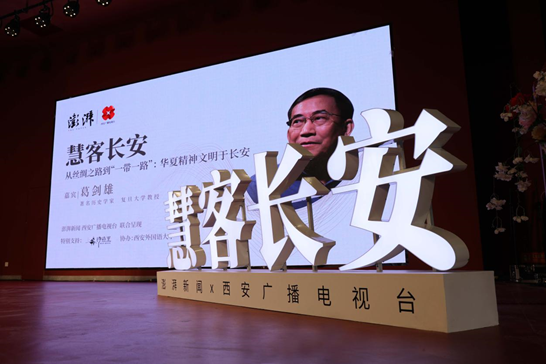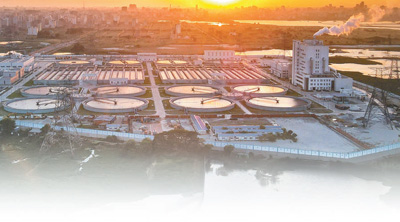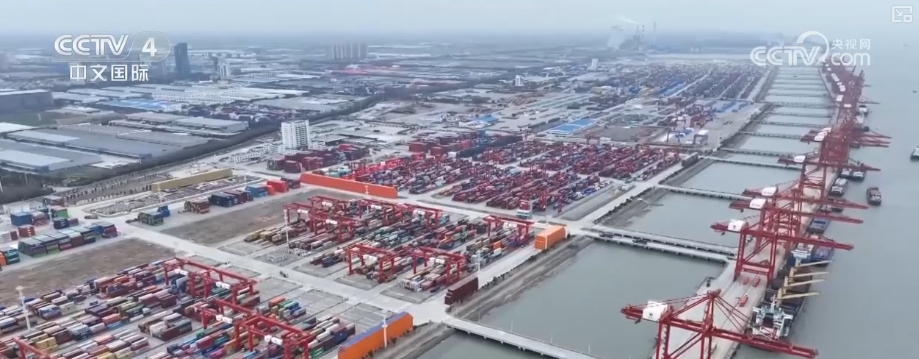China Communist Party News Network
China Communist Party News Network
The Belt and Road Initiative On September 7 and October 3, 2013, General Secretary Xi Jinping delivered speeches at Nazarbayev University in Kazakhstan and the Indonesian Parliament respectively

A macro picture of the Belt and Road Initiative
On September 7 and October 3, 2013, General Secretary Xi Jinping delivered speeches at Nazarbayev University in Kazakhstan and the Indonesian Parliament, and successively put forward major initiatives to jointly build the "Silk Road Economic Belt" and the "21st Century Maritime Silk Road", referred to as the "Belt and Road" initiative.
The "Belt and Road" runs through the Asia, Europe and Africa continent. On one end is the active East Asian economic circle and on the other end is the developed European economic circle. In the middle is the hinterland countries with huge development potential.
The "Belt and Road" initiative is a major strategic decision made by General Secretary Xi Jinping to coordinate the domestic and international situations, deeply think about the future and destiny of mankind and the general trend of China and the world's development, and to promote global common prosperity and build a community with a shared future for mankind. It is the top-level design of China's opening up to the outside world and economic diplomacy in the new era.
The Belt and Road Initiative adheres to the principle of consultation, joint construction and sharing, and focuses on deepening policy communication, facility connectivity, smooth trade, financial and social communication, and people-to-people communication as the main contents. Within the framework of international cooperation in the construction of the "Belt and Road", we will promote infrastructure construction and connectivity, strengthen economic policy coordination and development strategy docking, achieve complementary advantages and mutual benefit and win-win results for all parties, work together to meet the challenges facing the world economy, create new opportunities for development, seek new development momentum, expand new development space, and truly build the "Belt and Road" into a path of peace, prosperity, openness, innovation and civilization, and continue to move towards a community with a shared future for mankind.
As of the end of August 2019, 136 countries and 30 international organizations have signed 195 cooperation documents on jointly building the "Belt and Road" with China. Over the past six years, the Belt and Road Initiative has moved from initiative to practice and vision to action. The progress and results have exceeded expectations. There are more and more partners, and their influence and appeal are increasing. It is becoming a Chinese solution for China to participate in global open cooperation, improve the global economic governance system, promote global common development and prosperity, and promote the building of a community with a shared future for mankind. It has opened up a new realm for China to participate in and lead global open cooperation, and is a milestone in the history of world development.
Shanghai Pilot Free Trade Zone was established
The Shanghai Pilot Free Trade Zone is a regional free trade park established by the Chinese government in Shanghai. It is located in Pudong and falls under the scope of the China Free Trade Zone. On September 29, 2013, the China (Shanghai) Pilot Free Trade Zone was officially established with an area of 28.78 square kilometers, covering four special customs supervision areas including Shanghai Waigaoqiao Free Trade Zone, Waigaoqiao Free Trade Logistics Park, Yangshan Free Trade Port Area and Shanghai Pudong Airport Comprehensive Bonded Zone. On December 28, 2014, the Standing Committee of the National People's Congress authorized the State Council to expand the area of the China (Shanghai) Pilot Free Trade Zone to expand the area to 120.72 square kilometers. The extended areas include Lujiazui Financial Area, Jinqiao Development Area and Zhangjiang High-tech Area.
The overall goal of the establishment of the Shanghai Pilot Free Trade Zone is: after two to three years of reform experiments, accelerate the transformation of government functions, actively promote the expansion of service industry opening up and the reform of the foreign investment management system, vigorously develop headquarters economy and new trade formats, accelerate the exploration of capital project convertibility and financial services, explore the establishment of a classified supervision model for goods status, strive to form a policy support system to promote investment and innovation, focus on cultivating an international and law-based business environment, and strive to build a pilot free trade zone with international standards that is convenient for investment and trade, free currency exchange, efficient and convenient supervision, and standardized legal environment, explore new ideas and new ways for my country to expand opening up and deepen reform, and better serve the whole country.
Establishing the China (Shanghai) Pilot Free Trade Zone is a major decision made by the CPC Central Committee and the State Council, and a major measure to thoroughly implement the spirit of the 18th National Congress of the Communist Party of China and promote reform and opening up under the new situation. It is of great significance to accelerating the transformation of government functions, actively exploring innovation in management models, promoting trade and investment facilitation, and exploring new ways and accumulating new experience for comprehensively deepening reform and expanding opening up.
Replicating the successful experience of the Shanghai Free Trade Pilot Zone, by August 2019, the pilot program of the Free Trade Pilot Zone will gradually expand from Shanghai to Guangdong, Tianjin, Fujian, Liaoning, Zhejiang, Henan, Hubei, Chongqing, Sichuan, Shaanxi, Hainan, Shandong, Jiangsu, Guangxi, Hebei, Yunnan, Heilongjiang and other places.
General Secretary Xi Jinping proposed "targeted poverty alleviation"
On November 3, 2013, General Secretary Xi Jinping came to Shibadong Village, Paibi Township, Huayuan County, Tujia and Miao Autonomous Prefecture, Xiangxi Tujia and Miao Autonomous Prefecture, and sat together with village cadres and village representatives, chatting about family matters and talking about development. Here he proposed "targeted poverty alleviation" for the first time. General Secretary Xi Jinping said that poverty alleviation should be realistic and adapt to local conditions. We must achieve targeted poverty alleviation, avoid shouting slogans, and do not set goals that are too ambitious.
"It is my concern to make the lives of tens of millions of rural poor people better." General Secretary Xi Jinping has made important instructions on targeted poverty alleviation and targeted poverty alleviation on many occasions. He pointed out that targeted poverty alleviation means implementing refined management of poverty alleviation targets, precise allocation of poverty alleviation resources, and precise support for poverty alleviation targets to ensure that poverty alleviation resources are truly used in poverty alleviation targets and in poor areas. It is emphasized that the importance of poverty alleviation and development has been carried out to this level today, and the importance of accuracy is accuracy. Success or failure lies in accuracy. We must achieve "accurate support targets, accurate project arrangements, accurate use of funds, accurate measures to households, accurate dispatch of people according to villages, and accurate poverty alleviation results."
On November 27, 2015, General Secretary Xi Jinping delivered an important speech at the Central Poverty Alleviation and Development Work Conference, pointing out that the problem of "who to support" should be solved, and the real poor population should be clarified, and the poor population, the degree of poverty, the causes of poverty, etc. should be clarified, so that policies should be implemented according to households and individuals should be implemented. We must solve the problem of "who will help" and accelerate the formation of a poverty alleviation and development work mechanism that coordinates the central government, provinces (autonomous regions, municipalities directly under the central government) and cities (prefectures) and counties to implement it, so as to ensure that the division of labor is clear, responsibilities are clear, tasks are assigned to people, and assessments are in place. We must solve the problem of "how to help" and implement the "five batches" project according to the specific situation of poor areas and poor people. Targeted poverty alleviation is for targeted poverty alleviation. It is necessary to set a timetable to achieve orderly exit, which should prevent procrastination and impatient disorders.
Since the 18th National Congress of the Communist Party of China, under the strong leadership of the Party Central Committee with Comrade Xi Jinping as the core, decisive progress has been made in the fight against poverty. Our country has become the country with the largest number of people who have reduced poverty in the world and is also the first country in the world to complete the United Nations Millennium Development Goals.
Deliberate and pass the "Decision of the Central Committee of the Communist Party of China on Several Major Issues Concerning Comprehensively Deepening Reform"
In order to implement the strategic deployment of the 18th National Congress of the Communist Party of China on comprehensively deepening reform, on November 12, 2013, the Third Plenary Session of the 18th Central Committee studied several major issues in comprehensively deepening reform and passed the "Decision of the Central Committee of the Communist Party of China on Several Major Issues Concerning Comprehensively Deepening Reform".
The "Decision" profoundly analyzes the major theoretical and practical issues facing my country's reform, development and stability, and clarifies the great significance and future direction of comprehensively deepening reform. It is pointed out that the overall goal of comprehensively deepening reform is to improve and develop the socialist system with Chinese characteristics and promote the modernization of the national governance system and governance capabilities. The core issue of economic system reform is to handle the relationship between the government and the market well, so that the market plays a decisive role in resource allocation and better plays the role of the government.
The "Decision" takes reform as the main line, highlights new measures for comprehensively deepening reform, highlights important areas and key links, and highlights the traction role of economic system reform; adheres to active, steady and scientific planning, puts forward the guiding ideology, goals and tasks, and major principles for comprehensively deepening reform, and draws a new blueprint, new vision and new goals for comprehensively deepening reform, brings together new ideas, new conclusions and new measures for comprehensively deepening reform, and embodies the ideological consensus and action wisdom of the whole party and society on comprehensively deepening reform.
In terms of content structure, the "Decision" takes major issues that need to be solved urgently and plans according to the article. In addition to the introduction and concluding remarks, there are 16 parts in total and divided into three major sections. The first part is the general discussion, which mainly explains the great significance, guiding ideology and overall ideas of comprehensively deepening reform. Parts 2 to 15 constitute the second section, which is a sub-thesis, mainly from six aspects: economy, politics, culture, society, ecological civilization, national defense and the military, and specifically deploys the main tasks and major measures for comprehensively deepening reform. The sixteenth part constitutes the third section, which mainly explains strengthening and improving the Party’s leadership over comprehensively deepening reform.
The "Decision" reasonably laid out the strategic priorities, priority order, main direction, working mechanism, promotion method and timetable, and roadmap for comprehensively deepening reform, forming a series of new major breakthroughs in reform theory and policies. It is another general deployment and mobilization for comprehensively deepening reform, and will surely have a significant and far-reaching impact on promoting the development of socialism with Chinese characteristics.
Cultivate and practice the core socialist values
On December 11, 2013, the General Office of the CPC Central Committee issued the "Opinions on Cultivating and Practicing the Core Socialist Values". The "Opinions" point out that prosperity, democracy, civilization, harmony, freedom, equality, justice, rule of law, patriotism, dedication, integrity and friendship are the basic contents of the core socialist values. We must integrate the cultivation and practice of socialist core values into the entire process of national education and implement it in economic development practice and social governance.
Core values are the spiritual bonds on which a nation relies on and are the common ideological and moral foundation of a country. Whether a core value with strong appeal can be built is related to social harmony and stability and long-term stability of the country.
In November 2012, the report of the 18th National Congress of the Communist Party of China pointed out: "Advocate prosperity, democracy, civilization and harmony, advocate freedom, equality, justice and the rule of law, advocate patriotism, dedication, integrity and friendship, and actively cultivate and practice the core socialist values." This provides a basic category for cultivating and practicing the core socialist values.
The 19th National Congress of the Communist Party of China put forward new requirements for cultivating and practicing the core socialist values, pointing out that in order to cultivate and practice the core socialist values, we must focus on cultivating new people of the times who are responsible for the great responsibility of national rejuvenation, strengthen education and guidance, practical development, and institutional guarantees, give full play to the leading role of the core socialist values in national education, spiritual civilization creation, and spiritual cultural products creation, production and dissemination, and integrate the core socialist values into all aspects of social development and transform them into people's emotional identity and behavioral habits.
The people have faith, the country has strength, and the nation has hope. Since the 18th National Congress of the Communist Party of China, under the leadership of the Party Central Committee with Comrade Xi Jinping as the core, my country has made significant progress in its ideological and cultural construction, and the core socialist values have been widely promoted, gathering a powerful force for unity and progress.
The Chinese People's Victory Day of the War of Resistance Against Japanese Aggression
On February 27, 2014, the seventh meeting of the Standing Committee of the 12th National People's Congress passed the "Decision on Determining the Anniversary of the Victory Day of the Chinese People's War of Resistance Against Japanese Aggression".
The Decision pointed out that in order to remember history, remember the arduous struggle of the Chinese people to resist Japanese imperialist aggression, commemorate the heroes who sacrificed their lives bravely in the Chinese people's War of Resistance Against Japanese Aggression and all those who contributed to the victory of the Chinese people's War of Resistance Against Japanese Aggression, demonstrate the important position of the Chinese people's War of Resistance Against Japanese Aggression in the world anti-fascist war, demonstrate the firm position of the Chinese people's firmness in safeguarding national sovereignty, territorial integrity and world peace, carry forward the great national spirit with patriotism as the core, and inspire people of all ethnic groups in the country to work together to realize the Chinese dream of the great rejuvenation of the Chinese nation. It was decided to identify September 3 as the anniversary of the victory of the Chinese People's War of Resistance Against Japanese Aggression. The country holds commemorative activities every year on September 3.
In 1931, Japanese militarism brazenly launched the "September 18 Incident", and the Chinese people resolutely rose up and resisted bravely. After fourteen years of arduous struggle, the great victory of the Anti-Japanese War was achieved. On the morning of September 2, 1945, the Japanese government signed a surrender letter on the USS Missouri in Tokyo Bay. The Chinese People's War of Resistance Against Japanese Aggression and the World Anti-Fascist War officially ended.
The victory of the Chinese People's War of Resistance Against Japanese Aggression was the first complete victory for China to fight against foreign invasions in modern times. This great victory completely shattered the Japanese militarist plot to colonize and enslave China, and washed away the national shame of China's repeated defeat in fighting foreign aggression in modern times; re-established China's status as a great power in the world, and enabled the Chinese people to win the respect of the world's peace-loving people; opened up a bright prospect for the great rejuvenation of the Chinese nation, and opened a new journey of the ancient China's phoenix rebirth and rebirth from the ashes.
After the founding of the People's Republic of China, the State Council and the State Council successively set the second day of the Japanese government's surrender letter in 1945, September 3, as the "September 3rd Anniversary of the Victory Day of the War of Resistance Against Japan".
In 2014, the Standing Committee of the 12th National People's Congress made a special decision to determine the anniversary of the victory of the Chinese People's War of Resistance Against Japanese Aggression in the form of legislation, further demonstrating the great significance of this anniversary to the Chinese people.
(According to Xinhua News Agency)
"People's Daily" (15th edition, January 22, 2020)





